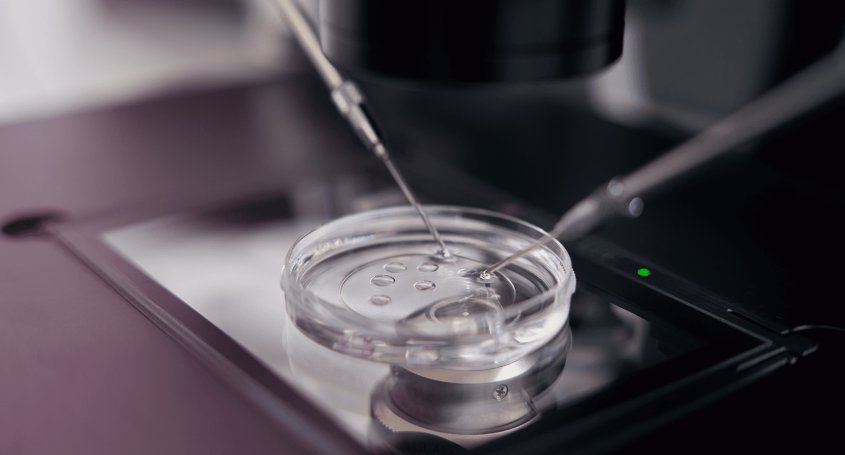With a fertility treatment the egg is fertilized with a spermatozoid in a laboratory, to be more specific, inside an incubator that replicates the internal conditions of the uterus while controlling parameters like pressure and temperature. Embryos are kept in the incubator between 3 to 5 days before they are transferred to the maternal uterus.
When we have to select which embryos or embryo will be transferred, we look for those that have the best chance at a successful implantation, being a key factor for the success of the cycle.
How do we select the embryos?
Until recently the only method was to evaluate the morphological characteristics, such as size, symmetry or cellular division rhythm of the embryos under a microscope. This requires taking the embryos out of the incubator on a daily basis and then putting them under a microscope in order to take note of said parameters. While being outside of the incubator embryos are exposed to temperature variations and other agents that can put their viability at risk.
Furthermore, this method presents certain limitations as embryos are evaluated only during specific moments of their development. This means we obtain less information leading us to believe an embryo is ready to be transferred when in reality that is not the case.
What advantages does the Embryoscope have?
An Embryoscope is a so-called time-lapse incubator fit with a camera able to take pictures of the embryos at times set by the laboratory. Thanks to this technology we can monitor the whole embryonic development without having to take them out of the incubator and, therefore, without altering their ideal culture conditions. We then have a more stable incubation, without temperature or humidity changes leading to better quality embryos.
Thanks to it we obtain a lot of information regarding the development as we can see the entire process. We no longer have information only from a specific moment of the day, but from several moments during the day. Therefore, the selection of embryos to transfer and/or freeze is better and this helps achieving better pregnancy rates.
It is also relevant to highlight the emotional implications this has, as it is a technique that offers a sense of safety and reassurance, because our patients know their embryos are under constant control and will be evaluated thanks to the latest technology available.
What kind of patient can benefit from an Embryoscope?
We can use the incubator Embryoscope during any In Vitro Fertilisation treatment. It is especially indicated in those cases where patients have a high number of embryos as it gives us the possibility to better select and compare them all and choose the best ones to transfer or freeze. This is especially true for patients aged 37 years old and over who want to have a baby.
As you can see there are many advantages to using the Embryoscope at Barcelona IVF. If you wish to get more information about it do not hesitate to contact us.















